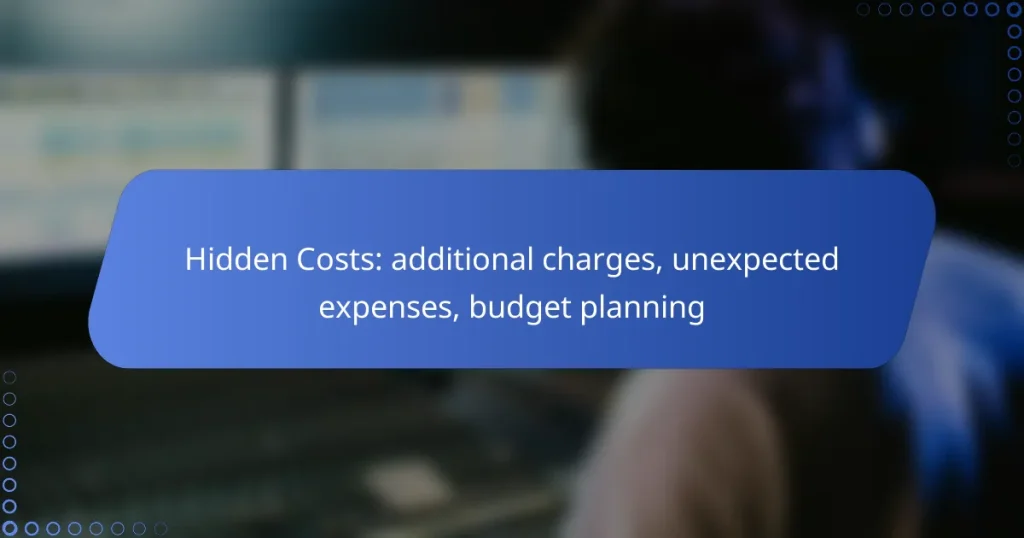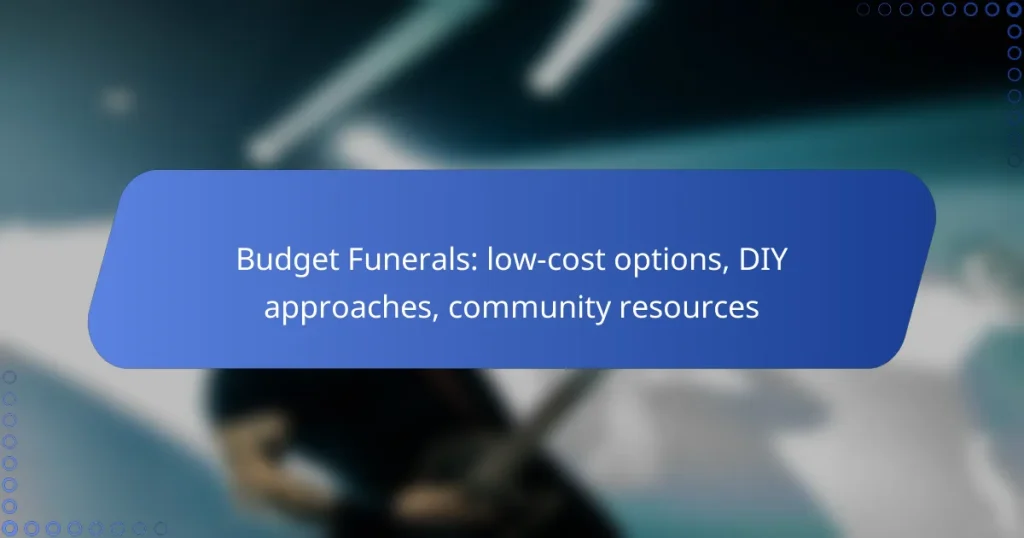Understanding the costs and logistics of funeral services is essential for families navigating this challenging time. In Canada, expenses can range from CAD 5,000 to CAD 15,000, influenced by various factors such as location and service type. Careful planning is crucial, involving the selection of a funeral home, transportation arrangements, and necessary permits to ensure a respectful and smooth process.
Hidden Costs: additional charges, unexpected expenses, budget planning
Budget Funerals: low-cost options, DIY approaches, community resources
Burial Costs: plot prices, headstone expenses, service fees
Payment Plans: financing options, interest rates, terms
What are the costs of funeral services in Canada?
The costs of funeral services in Canada can vary significantly based on location, service type, and personal choices. On average, families can expect to spend anywhere from CAD 5,000 to CAD 15,000 for a traditional funeral, including services and merchandise.
Average funeral service costs
The average cost of a funeral service in Canada typically ranges from CAD 7,000 to CAD 10,000. This price generally includes basic services, transportation, and a casket. Additional expenses, such as flowers, obituary notices, and cemetery fees, can increase the total significantly.
Direct cremation, which is a simpler option, can cost between CAD 2,000 and CAD 5,000, making it a more affordable choice for many families. Understanding these averages can help in budgeting for funeral expenses.
Factors affecting funeral costs
<p severaSeveral factors influence the overall cost of funeral services, including the type of service chosen, the location of the funeral home, and the specific requests of the deceased's family. For example, a full-service funeral with a viewing and burial will generally be more expensive than a direct cremation.
Merchandise choices, such as caskets and urns, also play a significant role in determining costs. Families should consider their preferences and budget when selecting these items to avoid unexpected expenses.
Regional cost variations
Funeral costs can vary widely across Canada, with urban areas typically experiencing higher prices than rural regions. For instance, a funeral in cities like Toronto or Vancouver may exceed CAD 10,000, while smaller towns may offer services for CAD 5,000 or less.
It’s advisable for families to research local funeral homes and compare prices to find the best options within their budget. Some provinces may also have regulations that affect pricing, so understanding local laws can be beneficial.
What logistics are involved in planning a funeral?
Planning a funeral involves several logistical elements, including selecting a funeral home, arranging transportation, and obtaining necessary permits. Each of these components requires careful consideration to ensure a respectful and smooth process during a difficult time.
Funeral home selection process
Choosing a funeral home is a critical step in the planning process. Consider factors such as location, services offered, and pricing structures. Many families prefer a home that provides comprehensive services, including planning, transportation, and memorial options.
It is advisable to visit multiple funeral homes to compare offerings and get a feel for their atmosphere and staff. Ask for itemized price lists to understand costs and avoid unexpected expenses.
Transportation arrangements
Transportation logistics include moving the deceased from the place of death to the funeral home and then to the burial or cremation site. Funeral homes typically handle these arrangements, but it’s essential to confirm details such as vehicle types and associated costs.
Consider the distance and the type of service you prefer. For example, some families may choose a hearse for the deceased and a limousine for family members, while others may opt for simpler arrangements. Always clarify transportation fees upfront to avoid surprises.
Permits and legal requirements
Obtaining the necessary permits and understanding legal requirements is crucial in the funeral planning process. Each state has specific regulations regarding burial, cremation, and the handling of remains, which must be adhered to.
Typically, a death certificate must be filed, and permits for burial or cremation are required. It’s advisable to check with local authorities or the funeral home to ensure compliance with all legal obligations, as failure to do so can lead to delays or complications.
How to compare funeral service providers?
To compare funeral service providers effectively, focus on their pricing, service quality, and customer feedback. This approach helps ensure you select a provider that meets both your budget and your expectations for care and professionalism.
Price comparison tools
Price comparison tools can help you evaluate different funeral service providers by displaying their costs side by side. Websites and local directories often list average prices for various services, such as cremation, burial, and memorial services. Look for tools that allow you to filter by location and specific services to get the most relevant information.
When using these tools, be aware that prices can vary significantly based on factors like location and service type. For example, basic cremation services may range from $500 to $3,000, while traditional burial services can cost between $7,000 and $12,000 or more, depending on the chosen casket and cemetery fees.
Service quality indicators
Service quality indicators include factors such as the range of services offered, the professionalism of staff, and the facilities’ condition. A provider that offers personalized services and has well-maintained facilities often indicates a commitment to quality care. Additionally, inquire about their experience and training to ensure they meet industry standards.
Consider visiting funeral homes in person to assess their environment and speak with staff. This firsthand experience can provide insights into their level of compassion and professionalism, which are crucial during such a sensitive time.
Customer reviews and testimonials
Customer reviews and testimonials can offer valuable insights into the experiences of others with specific funeral service providers. Look for reviews on independent platforms, as they tend to provide more unbiased opinions compared to those on the provider’s website. Pay attention to recurring themes, such as responsiveness, empathy, and overall satisfaction.
When reading testimonials, consider both positive and negative feedback. A provider with mostly positive reviews and a few constructive criticisms may still be a good choice, as it shows they are open to improvement. Aim to gather a range of opinions to make a well-informed decision.
What are the options for cremation vs burial?
Cremation and burial are the two primary options for handling remains after death. Each option has distinct processes, costs, and considerations that can influence the decision based on personal, cultural, and financial factors.
Cremation costs and services
Cremation costs typically range from a few hundred to several thousand dollars, depending on the services chosen. Basic cremation services may include the cremation itself, a simple container for the ashes, and necessary paperwork.
Additional services such as memorial services, urn selection, and transportation can increase costs. It’s advisable to compare prices from different providers and inquire about package deals that may offer savings.
Burial costs and services
The cost of burial can vary significantly, often ranging from a few thousand to over ten thousand dollars. This includes expenses for the burial plot, casket, headstone, and any associated services like embalming or a viewing.
Families should consider ongoing costs such as maintenance of the grave site and cemetery fees. It’s beneficial to discuss options with funeral homes and cemeteries to understand what is included in the pricing and any potential additional fees.
Environmental considerations
Both cremation and burial have environmental impacts that should be considered. Cremation generally uses fossil fuels and releases emissions, although newer technologies are reducing this footprint.
Burial can lead to land use issues and the use of non-biodegradable materials in caskets and vaults. Green burial options are becoming more popular, focusing on natural materials and minimal environmental disruption.
How to budget for funeral expenses?
Budgeting for funeral expenses involves understanding the costs associated with services, merchandise, and related fees. Planning ahead can help manage these expenses and reduce financial stress during a difficult time.
Creating a funeral budget
To create a funeral budget, start by listing all potential expenses, including the service fee, casket or urn, transportation, and burial or cremation costs. Typical funeral costs in the U.S. can range from $7,000 to $12,000, depending on the choices made.
Consider additional expenses such as flowers, obituary notices, and venue rentals. It’s wise to compare prices from multiple funeral homes to ensure you are getting fair rates.
Insurance and pre-planning options
Funeral insurance can help cover costs, allowing families to avoid financial burdens later. Policies typically pay a fixed amount upon death, which can be used for funeral expenses.
Pre-planning options include setting aside funds in a dedicated account or purchasing a pre-need funeral plan. These plans often lock in current prices, protecting against future inflation.
Financial assistance programs
Various financial assistance programs can help families manage funeral costs. Government programs, such as Social Security, may offer a one-time death benefit to eligible survivors.
Non-profit organizations and religious institutions often provide support or resources for families in need. Research local options and inquire about available assistance to ease financial strain during this time.
What are the emerging trends in funeral services?
Emerging trends in funeral services focus on personalization, eco-friendliness, and technology integration. Families increasingly seek unique ways to honor their loved ones, often opting for services that reflect individual personalities and values.
Personalization in Funeral Services
Personalization is becoming a key aspect of modern funerals. Families are choosing customized services that include unique themes, personalized music playlists, and tailored memorial displays. This trend allows for a more meaningful farewell that resonates with the deceased’s life and interests.
For example, some families may opt for a celebration of life event that features favorite hobbies or achievements of the deceased. This could include displaying memorabilia or even hosting the service in a location that held significance to the individual.
Eco-Friendly Funerals
Eco-friendly funerals are gaining popularity as more people become aware of environmental issues. Options such as biodegradable caskets, natural burial sites, and cremation with minimal emissions are increasingly sought after. These choices reflect a commitment to sustainability and respect for the planet.
Families interested in eco-friendly options should research local green burial grounds or inquire about sustainable practices at funeral homes. Costs can vary, but many find that these options can be comparable to traditional funerals.
Technology Integration
Technology is reshaping how funeral services are conducted, with virtual memorials and live-streamed services becoming more common. This trend allows friends and family members who cannot attend in person to participate and pay their respects from afar.
Funeral homes are also utilizing online platforms for planning and organizing services, making it easier for families to manage logistics. Additionally, digital memorials and social media tributes are becoming a standard way to celebrate a loved one’s life.




